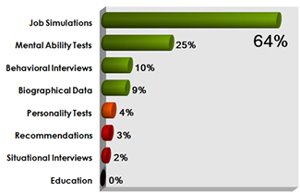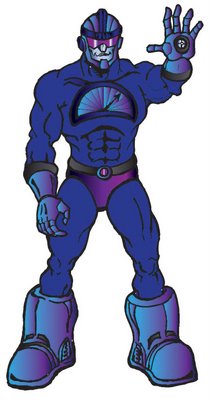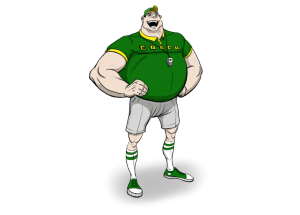5 ½ Reasons Why You Should Include Simulations in Your Hiring and Training Processes
People are your most precious resource. Nobody WANTS to make a mistake in hiring or promotions. When it comes to training Andy Grove, the Intel visionary, said it best, “The most important charge a good manager owns is the responsibility to continuously train his/her employees.”
Below are the 5 ½ reasons why simulations should be an integral part of your hiring, promotion and training processes.
-
The 5 to 1 Ratio
A mis-hire/promote costs the company 5 times the candidate’s annual compensation ($50,000 salary costs the company $250,000).
With training its just as easy to see the ROI. A business parable for you:
CEO said to the CFO ‘We have to train our people to get better.’
CFO says ‘Yea but what if we invest time and money to train them and they leave us to go to our competitor?’
CEO shoots back ‘What if we don’t train them and they stay?’
Whether it is a mis-hire or a less than adequately trained employee the impact on client relations, revenue, productivity, supervision time and morale is negative and it is huge.
-
The Power of Proof
Have you ever had an interview where the person told you they couldn’t do the job? Or have you ever had a person who “stretched” their abilities in the interview and as a result you were cleaning their messes for days, weeks or months after?
A best practice simulation provides you “Point-to-Point Correspondence” with the job. When the activities found in the simulation are a replica of activities that are required on the job, you get an accurate portrayal of skill level.
This is also why simulations are critical to training. Do you really want salespeople “practicing” on customers? Of course you don’t! General George Patton once said “The more my troops sweat in peacetime the less they bleed during combat.” Simulations are a must in all continual development.
-
How do They Handle the Debrief
Once they perform in the simulation how do they respond to constructive criticism? Are they thin-skinned? Do they gloat? Is their self-confidence warranted? Many times, you find out the best and the worst of people by observing how they handle coaching.
It also opens a window to know how they learn best. Through the Debrief you will discover what they will and won’t respond to. This can be invaluable as you continue to train and develop your team.
-
Go to the Video
When recorded, simulations help reduce, if not remove bias and subjectivity in the hiring process in one BIG way, “The eye in the sky does not lie.” You don’t want a he said/she said situation in any business scenario, but especially in simulations.
Here’s a great example of the benefit of recording simulations: A hiring manager who got a ‘good hit’ off a candidate, in an interview, might get a completely different feeling after watching a recorded simulation. The candidate might be the most charming person in the world, but when the time came he didn’t have the skills he trumpeted. In any business, that is a disaster averted.
Recorded simulations are irreplaceable in training as well. There is nothing better than being able to go back and review specific areas for either praise or correction. Plus, reviewing with individuals their recorded progress or regression is a very powerful training tool.
-
Onboarding
Even if somebody is an A-Player it does not mean they are perfect. Too many onboarding programs fail to adapt to the candidate, thus slowing the speed to effectiveness of the new hire.
Simulations don’t just weed out bad candidates. They also help you to assess a good candidate’s specific strengths and weaknesses in a hyper-accurate way. This allows you to design/implement an onboarding process to speed them to productivity. Not to mention it helps in offer decisions like salary negotiations.
5 ½. Positioning Your Company as the Best
The War for Talent is upon us and there are only so many A-Players out there. The mistake most organizations commit is purposefully making the hiring process easier out of fear of losing the candidate.
Thomas Payne said, “What we obtain too cheap, we esteem too lightly: it is dearness only that gives everything its value.” Being with the BEST requires paying the PRICE. Candidates learn respect for the position and respect for the company by demonstrating how seriously the company takes the hiring process. The best  candidates don’t want to be with some company that just rolls over. Remember everybody wants to belong to The Club that is impossible to get in.
candidates don’t want to be with some company that just rolls over. Remember everybody wants to belong to The Club that is impossible to get in.
87% of people who voluntarily (i.e .Quit) leave a company do so because of a lack of growth and development opportunity. Its human nature to want to improve, to develop new skills, succeed and advance. If you have good people, make them better.
Use simulations to continually train and develop your team. And you know what they call the company with the top employees… they call that company the BEST!
To ensure you are hiring A-Players and for training to be impactful and ‘sticky’ both have to be closely tied to how things are actually done in your organization. This is why simulations are such a critical management tool.
Hiring A Sales Superstar: The Wrap-Up
All right now, you have put you candidates through the prescribed series of interviews, tests and simulations. You are down to the candidate you want to hire so now what?
Hiring A Sales Superstar: The Simulation Critique
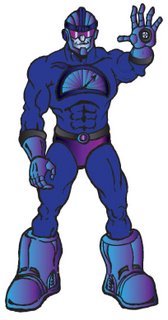 “The unexamined life is not worth living” – Socrates
“The unexamined life is not worth living” – Socrates
Okay, you conduct the simulation, video tape it and have your results all laid out. Now, you have to relay the results to the candidate. You may think you have learned everything there is to know because of the thoroughness of the simulation but you haven’t.
Our friend “Gauge” tells us how the candidate accepts your critique should be a crucial factor in your overall decision.
Now a short course on how to relay critique. The better the simulation the harsher the critique, the worse the simulation the more gentle. In both cases you MUST relay the facts it is just the manner that will change.
If they did a great job but are thin skinned during the critique that should tell you that they may not take criticism well much less be able to handle adversity. Or as Alec Baldwin said in Glen Garry Glenn Ross “if you can’t take what I am saying to you how are you going to take the abuse you get on a sit?” People who perform well need a more tougher approach because you don’t want some talented prima donna who can’t take coaching. They tend to be complainers and could undermine authority and teamwork.
If they did a poor job but take the criticism well or ask for a second chance to fix their mistakes and put your suggestions in action that should tell you about their resilience. I want somebody with the attitude to try until they get it right. You may be softer in your approach but nobody likes a bad review. If they crumble well… If they are made of sterner stuff they you’ll know by their response.
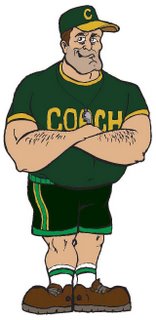 These examples are the extremes. Your critiques will vary of course as will how you handle them, always based on the individual. What is important is learning more about the candidate and their viability for your position while determining the direction of the interview process.
These examples are the extremes. Your critiques will vary of course as will how you handle them, always based on the individual. What is important is learning more about the candidate and their viability for your position while determining the direction of the interview process.
Check back for my for my next post on Hiring a Sales Superstar!
And remember “You can either make sales or make excuses but you can’t do both!”
[button link=”http://twitter.com/Sales_Impact” color=”lightblue”]FOLLOW ME ON TWITTER[/button]
Hiring A Sales Superstar: Constructing & Conducting a Sales Simulation
John C. KolencikWhen I was a kid and would get into trouble almost always my parents would find out. The next 20 minutes, after their discovery, I would spend apologizing, trying to avoid the inevitable punishment that was coming. That’s when my parents came right back everytime and said “John Christopher Kolencik your actions speak louder than your words” emphasis THEIRS!Why do we take a candidate’s word for it when they say that they can sell? Oh, right it says they can on their resume’. Yea, and their references said they can too. Well I have waited a long time to say this instead of hearing it “your actions speak louder than words”.
Sales simulations are a KEY tool in discovering the actual skill level of any potential sales hires. Think about it, what tells you more about a person besides how they actually react in a particular situation? And the beauty of the sales simulation is that you can construct it EXACTLY to the experiences you have everyday.
There are a 1o steps that must be adhered to so the simulation will yield the results and information you need to help in your hiring selection. I will detail 9 of them today and the 10th will be in my next post.
- Give the candidate access to any advice or resources that a currently employed sales person would have but don’t prompt them to specifics. If they ask great but if they don’t, well that tells you something right there doesn’t it?
- Make sure that the simulation is based in your everyday reality. Harder is better than easier but straying to either extreme garners you nothing but wasted time.
- Each step in YOUR actual sales process should be simulated, no short cuts!
- Detail out, internally, how you define success in the simulation. This gives you an un-biased road map to grade/assess the candidate.
- There should be multiple “actors” in any simulation. When was the last time you were involved in a sale that didn’t have multpile parties involved?
- Write defined roles and direction for the “actors”, don’t rely on their “acting chops”. This removes any bias or random mistakes.
- Include “planned interruptions” during the course of the simulation. What sale have you been a part of where your meetings were never interrupted?
- Always include a letter/proposal writing segment in any simulation. What a deflation it is to find your new star sales hire “don’t write too good”.
- Record it, minimum audio but preferably video. See my last post as to why.
- Conduct a Critique Session.
That’s it for today. If you have any questions or need any help constructing/conducting a Sales Simulation give me a call at 216-347-6729. Make sure to check back for my next post where I detail out Number 11; How to conduct an effective Critique Session. And believe you me if you thought the Simulation was an eye-opener just wait to see what you will learn by critiquing your candidate’s performance.
Hiring A Sales Superstar: 1st Interview Questions
“Nothing splendid has ever been achieved except by those who dared believe that something inside themselves was superior to circumstance” Bruce Barton
First let me introduce you to Gauge, he is a member of the BPL: The Best Practice League. His specialty is the hiring and assessment process and he helps us to remember just how important it is to not only ask the right questions but to ask them the right way.
Okay, I promised you the questions to use for a first interview. So below is the link to the document with the questions. But before we get to them, let’s talk about “HOW” to conduct a first in-person interview.
Remember this is an interview not a date. Don’t get swept up in the style of the moment. You are looking for answers that contain facts and figures. The best salespeople know how to make a compelling point . They know how to paint a picture evoking emotion with their words. They also know how to give specifics, facts and details. The less specific an answer is the quicker your @#$%^ detector should be going off.
Make sure you are very clear upfront about what you want from them. You want this to be conversational but you are looking for answers to these questions. If they don’t get to the point don’t let them off the hook. Keep after them a maximum of 3 times on any one question. If they have not answered the question to your satisfaction after 3 tries move on but make sure to notate the miss.
Finally, ALWAYS record your interviews. This kills 3 birds with the proverbial 1 stone. 1) you don’t have to trust your memory or your notes 2) upon reflection you may hear something for better or worse that you missed on the first pass 3) legal protection. Remember, you do have to tell them they will be recorded.
Please feel free to give me a call 216 347 6729 and we can talk through any questions you may have and in the meantime make sure you go to my websites by clicking in the links to the right.
Make sure to check back for the next post when we discuss how to conduct a Sales Simulation and conduct a Critique Session that will give you more insight into a sales hire than you ever thought possible.
Here are your 1st Interview Questions…
1st%20Interview%20Questions%20Rev.%201.doc
Hiring A Sales Superstar: Setting The Tone For Your Interview Process
William Arthur Ward
In our previous post we discussed the traits that are present in ALL Sales Superstars. Today we are going to discuss how to set the agenda with the applicant that will help to smooth the interview process on both sides of the table.
I LOVE a good candy bar, my favorite being 3 Musketeers, don’t know why just love’em! The thing I always notice is no matter how large my craving and how good it tastes going down the experience never really fills me up. Then when my eyes are bigger then my stomach and I have too many of those delectable little morsels (like Halloween) my stomach quickly shows its displeasure at my lack of willpower. Poor interviewing has similar symptoms but far worse consequences.
Okay, first off let’s remember this is an interview for a professional sales position, it is not a personality contest. Too many sales managers think they have to fall over themselves being genial while not asking any tough questions lest you scare off a potential hire. I am not advocating being rude I am saying you need to treat this as business meeting not a conversation at a bar. If you are looking for a new best friend or somebody who will be a “Yes Person” then you are in the wrong business.
Sales Superstars are competitive and they liked to be challenged. They will naturally gravitate to the person or organization that they believe CAN and WILL push them to be the best and help them make the most money.
Set The Tone
You need to inform them that
- You will be asking questions and followups
- If you see fit you may need to cut them off in mid-answer if they are not answering on point
- You want it to be conversational but not at the expense of getting to the information you need (IE ‘the truth’)
- This is a bi-directional process and they are welcome to ask as many questions as they see fit
- This is a filtering process for both parties, to continue the interview process both parties have to feel comfortable
- One word answers are not acceptable and you are actually looking for examples from their own personal experiences to illustrate their answers
Good start! If you set the ground rules as stated above it will allow for a clear and open discussion on qualifications. Just be prepared to live by your own rules. The best want to work with the best. We naturally are attracted to people who are as good or better than we are. If a Sales Superstar asks you direct questions and you can not answer them don’t expect them to WANT to work for you no matter how ‘nice’ an interviewer you may be….
That’s it for today, next up what are the questions you need to ask in an interview…
Hiring A Sales Superstar: What We Are Looking For
-
they would be skilled at asking questions and listening
-
they would understand how to dig in to any area that didn’t make sense or where information was lacking
-
they could piece together all the elements of the hiring process so they could make a well informed decision without sacrificing their gut instinct
-
they would have set questions they would ask of every candidate and not “wing it” or “shoot from the hip”
-
and most importantly they would know what makes a “qualified” candidate based on an established list of requirements
Hiring A Sales Superstar: Checking References
It always amazes me to find out how FEW sales managers actually check references. I’m all for trust, but can you really believe everything an interviewee is telling you? What really scares me is that I think it is more about being lazy/busy than trust. I heard a great line the other day, “We never have enough time to do it right, but we always have enough time to go back and fix it.” Let’s start doing it right the first time and eliminating unqualified candidates from ever darkening your office door again.
Step 1
After completing the phone screen and prior to scheduling the 1st in-person interview, let the applicant know you need their references and that they will be checked before the first interview.
Yes, I said checking references should be done BEFORE the 1st in-person interview. Why you ask… Do you want to waste your time in an interview with somebody who doesn’t have good references? I thought so… Also this has 2 additional benefits 1) It scares away anyone who doesn’t have good references and is either going to manufacture them when needed or hope you forget to ask and check. 2) It also tests the preparation of the applicant — letting you know just how proactive this person is. Either benefit really pays for itself in time investment ten fold in return.
Step 2
Making the Calls: There is a definitive art to making reference calls. Most people will only give you perfunctory information out of fear of getting sued. Your job is to relax the person you are talking to and make it a conversation, not an interrogation. People like to give their advice so if you ask questions that put them in the role of advisor and not former employer we are more likely to gather the info we need.
Questions You Should Be Asking In No Particular Order (Remember Conversation Not Interrogation)
- Could you describe your company’s culture?
- What makes a great sales rep at your company?
- What questions do you ask when you are calling about references? (after asking this make sure you follow their suggestions for at least 2 questions befoe you return to your own agenda)
- How would you compare _____with the best sales people in your company?
- How did _____function best? Clarify: Was it as member of a team or as a great salesperson?
- Is ____eligible to be rehired? If not Why?
- Would you enthusiastically recommend ____?
- What, if anything, distinguishes _____ from the best salespeople at your company?
- What do you think we can expect from ____ if she/he works for us?
You’ll rarely get all of the details about a candidate. So before you make the reference call try this tactic. Call their direct line whenever you are sure they won’t be there and leave this message: “____ is applying for a sales position at out firm. Your name has been given to me as a reference. Please call me back if this person was outstanding.” If they do not call back, follow up with an actual reference call during regular hours and ask if they got the message and if there was a reason they did not call you back.
Remember to either record or take detailed notes about the call. You may get a sterling recommendation, but that is not the overall goal of the call. You are determining if this person will be a Sales Superstar. Test what the reference said about the candidate. Incorporate specific questions and simulations, based on a references answers, into your interview process.
You never know what might be the one factoid that trips up a phony. One detail that saves you and your company thousands of dollars, hundreds of manhours and lost customers just because somebody “interviewed well” and you didn’t have time to check their references.
Okay on to the first interview. The next post we will be discussing the setup and how to incorporate what you have learned so far into the questions that are needed to assure you of hiring of a Sales Superstar!
Hiring A Sales Superstar: The Telephone Screen
Part 5: The Telephone Interview
After getting your position contract, hiring dashboard and other preparation work done it is time to dig in and to get people into the process. Remember, hiring is just like sales the more prospects you have in the pipeline the better chance you have of finding an A-Player. The best hires I have made over the years have been from the average ratio of 1 out of 68 applicants. The average time time they have been with their company is 8.2 years. They also have performed remarkably, the average quota attainment for my hires is 121%. The process works but you have to use it, so let’s start defining the steps so you can see these results too!
Tools: 3 basic questions and the ability to listen discerningly. The 3 questions need to be simple, direct and must give you insight to the applicant’s selling style and attitude (I will be posting a sample of questions with a link).
Methodology: Your calling sessions should always be between 7pm amd 9pm. Why in the evening you ask? Simple, when is the best time to reach somebody, during the workday or at home? When do you think that they will have their guard down and you will be able to get the “truest” answers from them? When will give you the best chance to really “hear” who they are? All have the same answer in THE EVENING!
* Now the call itself, first introduce yourself, let them know who you are and why you are calling. Ask if they are familar with your company then listen to their response. You are looking for someone who took the time to research your company and not just blasted out 1000+ resumes’.
* Next, explain what you will doing in this call. You have a few questions to ask, and they probably have a few questions (always make sure they have the time, this interview should last 15 to no longer than 30 minutes at the absolute outside). If they say yes then give them a chance to ask their questions. Go into some measure of detail but stay away from phone interview taboos like salary. Also, if the questions they ask are all about vacation, benefits, parking and start/end times (8-5, 9-6 etc.) these should be your first warning signs. You want to hear questions about the market, customers, typical sales day etc., these are good initial indicators of a salesperson.
* After they have exhausted their questions or time is running a bit long it is your turn. Ask the questions you have prepared and give them a chance to respond to each in full. Remember you are looking for clear, intelligent and thought provoking answers and you won’t hear them if you are talking over their responses. One of my steadfast guidlines is to never paraphrase an answer from an applicant. Always either audio tape or write EXACTLY what they said in response to your question. Never let your ASSUMPTIONS come in the way of their answers and actual intent.
* If their answers are to your satisfaction close the interview by asking if they have any other questions. To a “good” sales applicant they will recognize this as the opportunity to try and close you for an in-person interview. If they do not try and close you it is a judgement call as to whether you ask them for an in-person. In case you were wondering, 90% of the time I will not invite them for an in-person unless they tried to close me first.
*Wrap it up by scheduling a first in-person interview and making sure you get their references because you need to check them in before the in-person.
There are, obviously, many areas of open interpretation here. Please feel free to call or email with any questions you may have.
Next post we’ll discuss how to conduct the reference check and why to do it BEFORE the first in-person interview!
Hiring A Sales Superstar: Measuring Your Results
Part 4: Measuring Your Results
Hiring needs to be a trackable, multiple step process or as the saying goes “measure twice, cut once”. We simply can not afford the cost of our time, effort and potential loss of customers or revenue because of a bad hire. So today we are digging into the setup of your new hiring system
First, before you start using the system you MUST create a “hiring dashboard”. Usually its a spread sheet or project document that allows you track each candidate as to where they are in the process and how they are performing at each step. This is a crucial tool that will help you to not only keep up to date with your candidates but it will also help you to see where and what steps need to be improved in your system (I will be posting a sample of this at the end of the week). This document can also be an excellent communication tool. It should be posted on a shared resource drive so all members of the hiring team can update the dashboard as needed as well as check on the progress of all candidates in the pipeline at any time.
Next you need to establish a scoring or rating system for each step of the system. My rule of thumb is KISS (keep it simple stupid). I generally have 3 possible scores, 1) acceptable 2) not acceptable 3) above average. This methodology allows the actual “math” to be relatively easy. You total the 3 answers and factor in your “gut” feeling when you have candidates who are close in answer results. I promise you will find that the best candidates are ALWAYS the highest scores if you use the right measures.
Okay, that’s it for today tomorrow, 4/09/08, I will begin to detail out the the first steps of the Hire Right System, talk to you then!
Archives
- May 2018
- November 2016
- June 2016
- April 2016
- March 2016
- February 2016
- January 2016
- February 2012
- January 2012
- December 2011
- October 2011
- August 2011
- July 2011
- June 2011
- May 2011
- April 2011
- March 2011
- February 2011
- July 2009
- June 2009
- May 2009
- August 2008
- June 2008
- May 2008
- April 2008
Categories
- A-Players
- Best Practice
- Change
- Cold Call
- Communication Skills
- Continual Development
- Critique Session
- Customer
- D.I.G.
- Drive
- Firing
- Guts
- Handling criticism
- Hiring and Assessment
- Hiring Dashboard
- Human Resources
- Intelligence
- interview questions
- Interviewing
- interviewing sales superstars
- Lead Generation
- Leads
- Motivation
- Naturally Curious
- New Contact Touches
- Position Contracts
- Proposals That Sell
- Prospects
- Reference Checks
- S.I.T. Blitz
- S.I.T. Nurture Prospecting System
- S.I.T. Touch
- Sales 3.0
- Sales Blitz
- Sales Management
- Sales Superstars
- Simulations
- Skill Sets
- Staffing
- Suspect/Prospect/ Customer Dynamic
- Suspects
- Talent and Traits
- Termination
- Uncategorized
